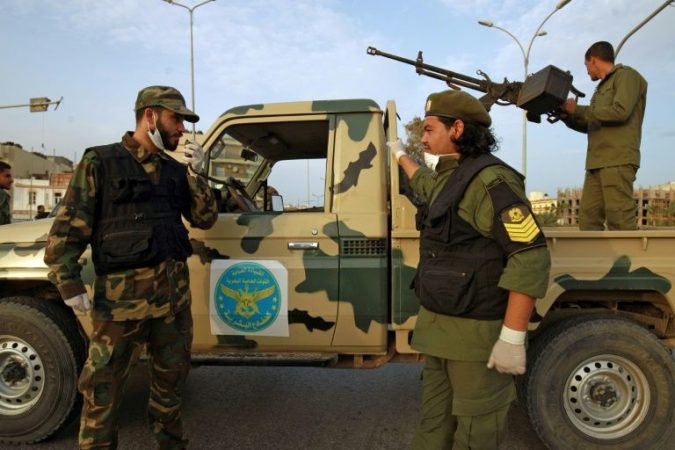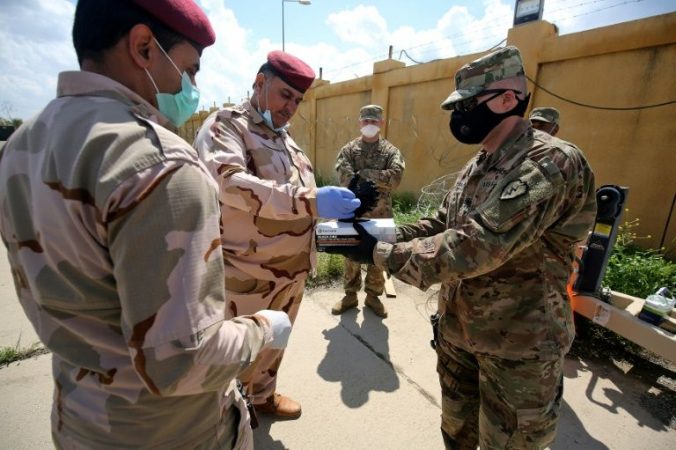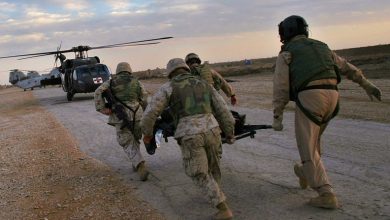
Coronavirus impact on conflicts in Middle East
US, WASHINGTON (ORDO NEWS/AFP) — The new coronavirus has left tens of thousands of people dead and forced half of the world’s population to containment. But the impact of this epidemic on the wars in progress in the Middle East is still uncertain.
With the efforts of the planet concentrated on the fight against the disease, the actors in conflict in Syria, Yemen, Libya and Iraq, where foreign powers intervene, continue to advance their pawns. But with no prospect of a lasting immediate outcome.
The “worst is yet to come” for the nations in conflict, for his part warned the head of the UN Antonio Guterres by relaunching his call for cease-fires all over the world to help stem the progression of the disease from Covid-19.
The epidemic raises fears of a humanitarian catastrophe in these countries with infrastructure devastated by war and where millions of people depend on aid.
- Syria -
The new coronavirus began to take on an international scale as yet another truce entered into force in the province of Idlib and its surroundings in northwestern Syria between the regime and its Russian ally on the one hand, and jihadist groups and rebels - including some pro-Turks - on the other.
File ReutersThe three million inhabitants of this region had little hope of seeing the lull last, exhausted by the latest deadly offensive in Damascus. But fears about the epidemic seem to help preserve this truce.
In March, the toll of civilian casualties reached its lowest since the start of the conflict in 2011 with 103 deaths, according to the Syrian Observatory for Human Rights (OSDH).
For the various actors on the ground - the regime, the Kurdish forces in the northeast and the anti-Damascus factions in Idlib - good management of the epidemic would consolidate their credibility.
“This epidemic is a way for Damascus to show that only the Syrian state is effective and that it is therefore necessary to reintegrate the different territories under its governance,” said expert Fabrice Balanche.
The pandemic could also precipitate the departure of American troops, their “health security” being a “major issue”, he added. But that would contribute to a security vacuum that would encourage a resurgence of the Islamic State (IS) group, whose “caliphate” in Syria collapsed in March 2019.
In nine years, the Syrian conflict has killed more than 380,000 people, as well as millions of displaced people who are particularly vulnerable if the epidemic spreads.
- Yemen -
The Yemeni government and Houthi rebels first welcomed the UN’s call for a truce, as did Saudi Arabia, at the head of a military coalition that supports pro-government forces.

But the hopes of a permanent lull, after more than five years of stagnation, were quickly shattered.
Last week, Saudi forces intercepted missiles launched by the Houthis into the skies of Ryad and a city near Yemen. In retaliation, the coalition struck “military targets” in Sanaa, the Yemeni capital at the hands of the Houthis.
In recent years, negotiations have stalled regularly in this country suffering from the worst humanitarian crisis in the world, according to the UN. NGOs fear a disaster if the virus spreads, Yemen has a poor health system and suffers from water shortages.
“If the war continues, the coronavirus will spread. People will die in the streets, the corpses will rot,” fears Mohammed Omar, a taxi driver from Hodeida, a western port city.
- Libya -
As in Yemen, the protagonists of the Libyan conflict welcomed the call for a cease-fire of the United Nations … before resuming hostilities.

The fighting has intensified in recent days, affecting several residential areas of the capital.
“A huge gap remains between statements and actions,” said Guterres.
In this conflict, Turkey supports the government of Tripoli, recognized by the UN, which faces for a year an offensive of the strong man of the Libyan east, the marshal Khalifa Haftar.
For Fabrice Balanche, a Western disengagement from the conflicts in the region could favor the pro-Haftar forces supported by Russia, Egypt and the United Arab Emirates.
Western countries have been hit hard by the pandemic, which could push them to divert their military resources from foreign conflicts but also weaken the negotiation process.
According to a report by the International Crisis Group (ICG) think-tank, efforts to secure the ceasefire in Libya “no longer garner attention at the highest level”.
- Iraq -
In Iraq, if the war has already ended, the country remains threatened by a resurgence of IS in certain regions, while tensions between the United States and Iran show no signs of fatigue.

Washington deployed anti-aircraft defense batteries this week, raising fears of a new escalation with Iran, whose Iraqi deputies are held responsible for the rockets which continue to be launched on the Green Zone in Baghdad, where the American embassy is located, and bases for American soldiers.
—
Online:
Our Standards, Terms of Use: Standard Terms And Conditions.
Contact us: [email protected]
The article is written and prepared by our foreign editors from different countries around the world - material edited and published by Ordo News staff in our US newsroom press.








